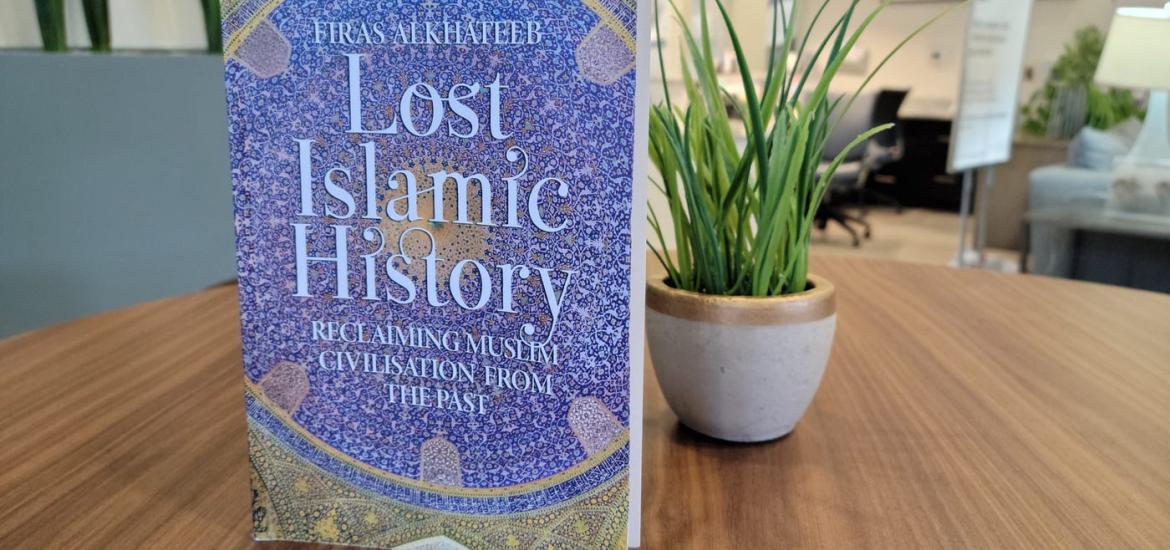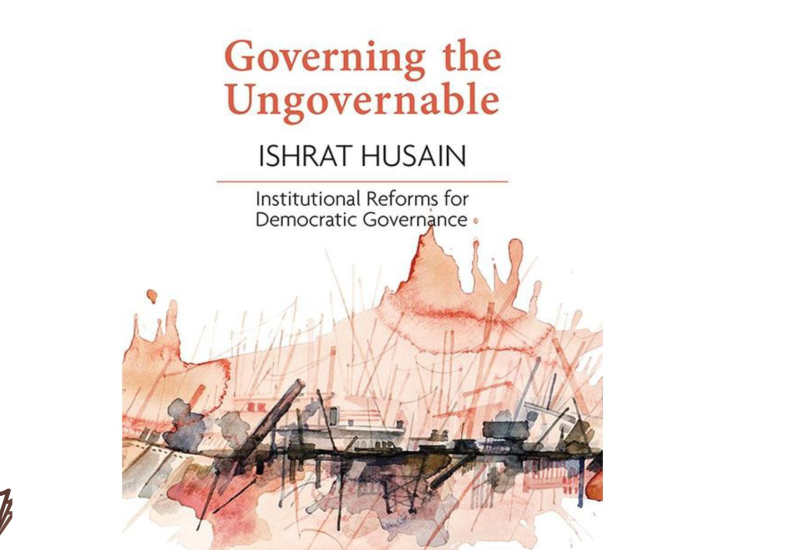Lost Islamic History: Reclaiming Muslim Civilization from the Past
“Lost Islamic History: Reclaiming Muslim Civilization from the Past” is a meticulously researched and thought-provoking exploration of the rich heritage of Islamic civilization, written by Firas Alkhateeb, an American scholar, writer and historian. The book digs deeper into the often-overlooked contributions of Muslims throughout history, offering readers a comprehensive understanding of the diverse achievements and enduring legacy of Islamic culture.
Comprising of 11 chapters with 167 pages, this book aims to bridge the gap between the often-overlooked contributions of Muslim civilization and the popular perception of Islamic history. Covering the pre-Islamic era, the emergence of Islam, and the struggles endured by Muslims to uphold their faith, it provides a captivating glimpse into Islamic states’ formation, rise and eventual decline, accompanied by the underlying reasons.
Alkhateeb begins by addressing common misconception that Islamic history is limited to a narrow scope focusing solely on conquests and conflicts. Instead, he presents a deeper and multifaceted narrative that highlights the remarkable advancements in science, art, philosophy, governance and social justice that flourished within Islamic societies.
The book sets the stage with a brief introduction of the Arabian Peninsula’s natural scenery and the sociological lifestyles of its inhabitants, mainly nomadic Arab tribes. Poetry as a major mode of expression was an important aspect of this culture as was a keen interest in trading with neighboring areas.
Alkhateeb explores into the Prophet Hazrat Muhammad’s (Peace Be Upon Him) early life, his revolutionary influence on beliefs and society and the growth of his followers. It describes the exodus from Mecca to Medina and the difficulties encountered culminating in the founding of Islam in Mecca. The story then shifts to choosing caliphs, including Hazrat Abu Bakar (R.A), Hazrat Umar bin Khattab (R.A), Hazrat Usman Ghani (R.A), and Hazrat Ali ibni Abi Talib (may Allah Subhanahu Wa Ta’ala (SWT) be pleased with all of them). The author emphasizes obstacles, historical changes and military adventures such as the seizure of Jerusalem, Gaza, Caesarea and Antioch.
Alkhateeb elucidates the consolidation of Muslim rule under Hazrat Mu’awiya’s reign (may Allah (SWT) be pleased with him) in the 4th chapter -The Establishment of Muslim state, focusing on territorial expansions into North Africa, modern Tunisia, Algeria and Morocco. The terrible events of Karbala and the resulting difficulties with the Umayyads are addressed articulately, followed by the revival and expansion of their empire from Spain to India.
The establishment of the Abbasids, descended from Muhammad’s (peace be upon him) uncle’s genealogy ushers in an era of transformation. Alkhateeb describes the Abbasid conquest which marked a turn away from military victories and towards intellectual accomplishments. The next chapter-05, “The Intellectual Golden Ages”, focuses on the development of science, religion, philosophy, medicine, astronomy, mathematics Islamic law and culture throughout the Muslim period.
Further sections of the book look into the diversity of Muslim sects, the migration of Turk tribes, and their conversion to Islam. The author expounds on the Seljuks’ encounters with the Byzantine Empire, the Crusaders’ capture of Jerusalem and the subsequent liberation by Salah-al-din. The Mongol threat led by Genghis Khan and its far-reaching consequences for the Muslim world are outlined.
Al-Ghazali’s contributions to Islamic law reform, the Umayyad rule in al-Andalus and the spread of Arabic art and culture are meticulously depicted. The author underscores the pivotal role of Cordoba and Granada, tracing the decline of Muslim power in these regions. The write up continues with the arrival of Islam in West Africa, East Africa, China and India. The relationship of China with Islam is discussed, as is the effect of Muslim rulers in India, notably Muhammad bin Qasim’s expedition into Sindh and the founding of an Islamic state.
One of the book’s strengths lies in its accessibility. Alkhateeb skillfully weaves together historical accounts, anecdotes, and analysis, making complex topics understandable and engaging for readers of all backgrounds. Whether discussing the Golden Age of Islam, the contributions of scholars like Ibn Sina and Al-Khwarizmi or the impact of Islamic principles on architecture and urban planning, the author presents a compelling case for the profound influence of Islamic civilization on global development.
The book offers a sweeping narrative spanning over a millennium, encompassing empires like the Umayyads, Abbasids and Ottomans, alongside lesser-known regions like Muslim Spain and West Africa. Alkhateeb sheds light on advancements in science, mathematics, medicine, and philosophy during the Islamic Golden Age, highlighting the pioneering role of Muslim scholars.
Written in very soft style, the book avoids overly academic language making it suitable for a wide audience. By emphasizing scientific progress, cultural flourishing and diverse political structures the book challenges stereotypical narratives often associated with Islamic history.
Moreover, this book challenges prevailing stereotypes and biases, offering a more balanced and accurate portrayal of Muslim societies throughout the ages. By highlighting moments of cooperation, innovation, and cultural exchange between Muslims and other civilizations, Alkhateeb underscores the interconnectedness of human history and the importance of embracing diversity.
Two of the book’s minor criticisms include its limited coverage of certain regions and periods, and limited reference material as reflected in the bibliography. However, this does not detract significantly from the overall value and impact of the book as a scholarly work and educational resource.
In conclusion, this book is a compelling and enlightening read that sheds light on the often-overlooked achievements of Islamic societies. Alkhateeb’s passion for his subject matter is evident throughout the book, making it an essential addition to the library of anyone interested in history, cultural studies or interfaith dialogue.
It serves as a valuable resource for readers seeking a general overview of the significant contributions of Muslim civilization throughout history. Alkhateeb effectively highlights the intellectual and cultural achievements of Islamic world, prompting further exploration of this rich historical period. It provides a compelling introduction to the vast and often under-recognized achievements of Muslim civilization. While acknowledging potential limitations in scope and potential bias, the book offers a valuable perspective and serves as a springboard for further exploration of this dynamic historical period.







